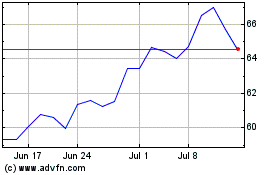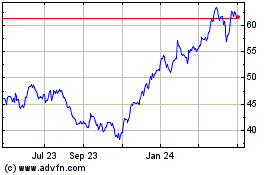A Senate vote on a compromise measure to rescue the U.S. auto
industry could occur as soon as Thursday night, as negotiators
huddle in a last-ditch effort to come up with a bipartisan
deal.
Senate Majority Leader Harry Reid, D-Nev., said Thursday that
"there's good faith negotiations going on as we speak" on a
compromise bill and that "there's a possibility, even a probability
that sometime this evening we'll be able to vote."
"We're a lot further down the road then I thought we would be,"
Reid said.
Reid said a vote on the compromise bill - if it occurred - would
take place alongside votes on other alternative measures to save
the struggling auto industry. He added that a vote on a version of
the auto rescue package passed by the House Wednesday would likely
not receive a vote in the Senate, due to a lack of sufficient
support to pass it.
The new negotiations Thursday involved Senate Banking Committee
Chairman Christopher Dodd, D-Conn., Sen. Richard Durbin, D-Ill.,
and Sen. Robert Corker, R-Tenn. Aides to Majority Leader Reid and
United Auto Workers union officials were also believed to be
participating in the talks.
Sen. Thomas Carper, D-Del., said that the two sides are
negotiating a hybrid of Corker's proposal and a proposal negotiated
between congressional Democrats, including Dodd, and the White
House.
Corker's proposal would requires auto makers receiving
assistance accept conditions that they work with creditors to
reduce their debt by two-thirds and with the United Auto Workers
union to bring labor costs in line with those of foreign auto
makers, while Dodd has pushed for a "car czar" to serve as a
regulator for the rescue funds.
"The meeting is going very well, but we still have some issues
to work out," Corker said.
The newfound optimism comes on a day when Republican opposition
in the Senate threatened to derail a $14 billion aid package passed
by the House Wednesday night.
Top Republicans in the Senate vowed to oppose the House-approved
bill without significant changes.
"This proposal isn't nearly tough enough," Senate Minority
Leader Mitch McConnell, R-Ky., told colleagues, calling for
stricter measures to ensure reform at General Motors Corp. (GM),
Ford Motor Co. (F) and Chrysler LLC.
The opposition by McConnell and other Republicans raised doubts
about whether Democrats could marshal the 60 votes needed to ensure
passage of the aid package.
But Senate Democrats pushed ahead with plans for a vote as soon
as Thursday afternoon. "We have danced this tune long enough," Reid
told colleagues Thursday morning.
The time frame is tight, with GM and Chrysler in danger of
running short of cash before the end of the year and Congress soon
entering a holiday recess.
Early debate on the Senate floor Thursday indicated serious
obstacles remain before auto allies could muster the votes needed
to ensure passage of a House-passed proposal, and Reid conceded
that there are not enough votes to pass it. The package passed the
House on a 237-to-170 vote Wednesday night, with Democrats
providing most of the support.
Several Republican senators assailed the House bill for giving
too much authority to the car czar - which would be a presidential
designee - to oversee the industry's restructuring.
The House bill is "based on a concept that the bureaucracy can
run the free-enterprise system better than the free-enterprise
system can, and it doesn't work," Sen. James Inhofe, R-Ok., said on
the Senate floor.
Sen. John Ensign, R-Nev., said the presidential designee would
inevitably be influenced by politics.
"A bailout would invite all sorts of meddling by lawmakers to
have the companies carry out their own sort of pet policies,"
adding that a bankruptcy judge would be the appropriate authority
to oversee the auto makers' restructuring.
McConnell indicated he would support Corker's bill, because of
the conditions it creates for the automakers.
"The Corker proposal would make many much-needed and dramatic
improvements to the underlying bill," McConnell said.
Corker said union leaders and car-company executives have
expressed openness to those conditions, and the process would have
the same effect as a reorganization in bankruptcy court.
Other Republicans voiced support for the Corker proposal.
Sen. James Inhofe, R-Ok., said a bankruptcy filing may yet be
the best option.
"As undesirable as bankruptcy is, I don't know of any other way
you can actually force the tough negotiations that have to take
place" to restructure the companies, he said.
The House bill was forged over five days of negotiations among
top presidential aides and the Democratic congressional leadership.
But congressional Republicans have complained they were left out of
the process and expressed serious opposition.
-By Josh Mitchell, Dow Jones Newswires; 202-862-6637;
joshua.mitchell@dowjones.com
Click here to go to Dow Jones NewsPlus, a web front
page of today's most important business and market news, analysis
and commentary:
http://www.djnewsplus.com/al?rnd=OBSC4tG5tv93CjIHwO9G9A%3D%3D. You
can use this link on the day this article is published and the
following day. .
Citigroup (NYSE:C)
Historical Stock Chart
From Oct 2024 to Nov 2024

Citigroup (NYSE:C)
Historical Stock Chart
From Nov 2023 to Nov 2024
